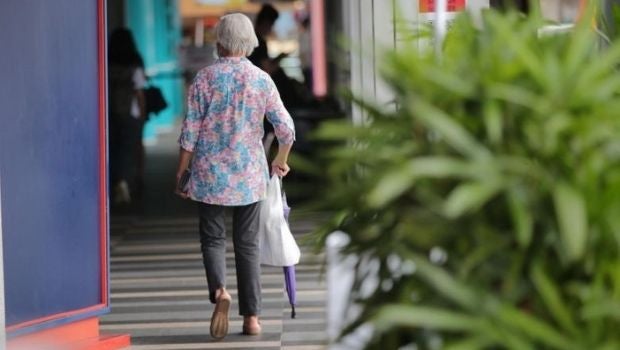
Infected patients at risk of developing severe disease will be treated pre-emptively. ST PHOTO: GIN TAY
Patients with severe Covid-19 and those at risk of getting that eyed for immune treatment
Singapore's first Covid-19 specific T cell clinical trial is ready to recruit its first patients.
Conducted by a research team from KK Women's and Children's Hospital (KKH), this human trial of a potential coronavirus treatment received approval from the Health Sciences Authority in July.
The trial is targeting patients with severe Covid-19 disease as well as those at risk of developing severe disease. There are five hospitals where patients can receive this T cell treatment.
Patients who develop severe Covid-19 disease were found to have low levels of T cells, which are a type of white blood cell that helps the body fight infections.
Only patients who have recovered from the coronavirus have Covid-19 specific T cells.
Called Covid-19 memory T cells, they are ready to multiply in response to reinfections by Sars-CoV-2, the virus which causes Covid-19. The immune response during reinfection will be quicker and more potent.
For this study, Covid-19 specific T cells were harvested from blood donated by six recovered Covid-19 patients.
Around 350ml to 450ml of blood was collected from the first batch of donors in April.
The T cells harvested from this blood, sufficient to treat 40 patients, are currently stored in a cell bank.
Patients with severe Covid-19 will be treated with the T cells intravenously. Infected patients at risk of developing severe disease - such as those above the age of 65, or obese individuals - will be treated pre-emptively.
The two main objectives of the trial are to prove that the T cells are safe to use, and that this treatment method is effective. For instance, to measure the efficacy of this trial, the clinical response in terms of time taken to recover from a Covid-19 infection would be measured.
Patients will also be monitored for six months to a year to look out for side effects and to ensure that the trial is safe.
Achieving immunity to the Sars-Cov-2 virus has been something which scientists around the globe are racing towards.
Immunity comes in two forms, Professor Leung Wing Hang, a senior consultant in the haematology oncology service at KKH said. Active immunity could be achieved via natural infection or through vaccination.
On the other hand, passive immunity - where the immunity of a recovered patient is transferred to a currently ill patient - can be done via B cells and T cells, both of which are white blood cells.
When the Sars-CoV-2 virus enters the body, phagocytes - another type of white blood cell - are activated to ingest the virus.
"Now the problem with Sars-CoV-2 is that it lives inside the infected cells, making it difficult for the phagocytes to ingest the virus, as the phagocytes are outside the infected cell. In the absence of a T cell response, the phagocytes will proliferate as they try to get rid of the virus," Prof Leung, who is also the lead of this study, explained.
"This ends up causing more harm than good: Too many phagocytes lead to tissue hyper-inflammation, which we see in Covid-19 patients."
Conversely, the presence of T cells will not only help B cells make antibodies, but they can also directly kill virus-infected cells, dampening the inflammation caused by the phagocytes.
In the treatment being trialled, the donor and recipient will have to be first matched via tissue typing before the Covid-19 specific T cells are injected.
Dr Michaela Seng, a consultant in the haematology oncology service at KKH and the co-author of this study, said: "We have found that regardless of race and ethnicity, patients here will have more than a 90 per cent chance of matching with at least one of the 40 units of these Covid-19 specific T cells in the bank."
The researchers expect that a single dose will suffice in helping a patient recover.
Given that the manufacture of the T cells takes just a day, supply of these cells can be scaled up quickly if required.
Fragments of proteins from the Covid-19 virus are mixed with the cells from the donor. Only those T cells specific to Covid-19 will bind to the fragment proteins, allowing them to be harvested.
Plans to internationalise the trial are also under way, Prof Leung said. KKH's collaborators in Europe are in the midst of obtaining regulatory approval.
"Hopefully, trials in Europe can open at a similar time, allowing this to become a multinational study that is headed by Singapore, in KKH," Prof Leung said.

Locally, the Republic has five hospitals where patients can receive this T cell treatment. Patients must give consent before they receive the treatment.
These are KKH, which is the lead site, Singapore General Hospital, Sengkang General Hospital, Changi General Hospital and National University Hospital.
KKH said the trial is the first in the world, as other international groups are researching T cells that are non-specific to the Covid-19 virus.













 Get it on Google Play
Get it on Google Play